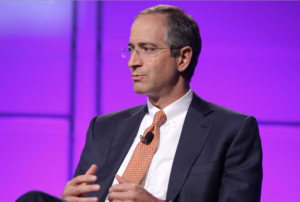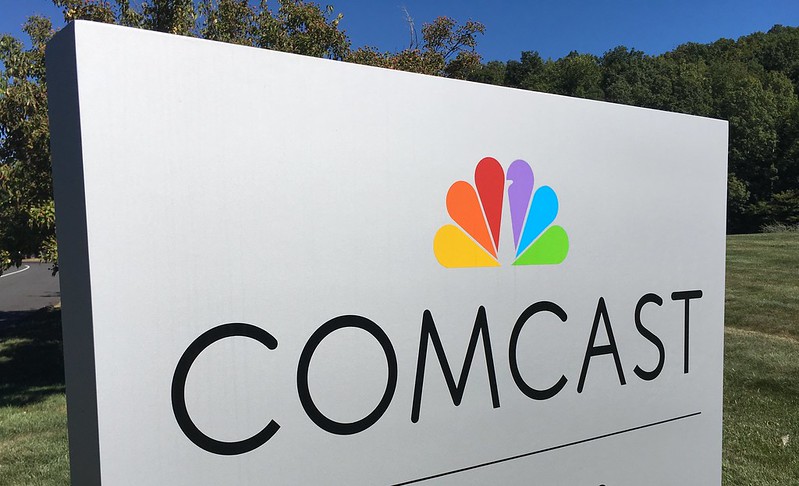NLPC’s Shareholder Proposal
Late in 2023 NLPC submitted a proposal for publication in the proxy statement for shareholders to vote upon at the Comcast annual meeting in spring 2024. The proposal asked for the Board to adopt a policy for director transparency, to promote shareholder understanding before the voting started, about the individuals who were nominated to govern the Company for the upcoming year. The “Resolved” section of the proposal sought:[1]
Shareholders request the Board adopt as policy, and amend the governing documents as necessary, to require each year that director nominees to furnish the Company, in sufficient time before publication of the annual proxy statement, information about their political and charitable giving. The information would be most valuable if it contained:
- a list of his or her donations to federal and state political candidates, and to political action committees, in amounts that exceed $999 per year, for each of the preceding 10 years;
- a list of his or her donations to nonprofit (under all IRS categories) and charitable organizations, in amounts that exceed $1,999 per year, for each of the preceding five years.
Information that nominees provide to the Company shall be made conveniently available to shareholders and the public at the time the annual proxy statement is issued.
The predicate upon which the proposal was made were examples in which other companies, such as Anheuser-Busch InBev (makers of Bud Light), Target Corporation and The Walt Disney Company, saw their revenues, profitmaking and stock prices suffer due to engagement on divisive social and political issues. NLPC cited examples where Comcast has similarly drifted into dangerous territory weighing in on various controversies. The proposal summarized it thusly:
Shareholders are uninformed about members’ ideological and political views. Greater transparency is needed to allow shareholders to know whether our Board suffers partisan capture and therefore the group-think and ideological blinders that have cost some companies dearly in recent years.
The limited biographies of director nominees published by companies in their proxy statements, and on their websites, are little more than bare-bones chronologies of past management and leadership roles in corporate, government, and sometimes philanthropic contexts. Presentations of existing and would-be board members, showing only carefully burnished “skills and qualifications” that may or may not be accurate, are often exaggerated. Comcast is just like every major public corporation in this regard.[2]
Because of this vague puffery upon which shareholders are expected to [often dis-] inform their votes for directors, they sometimes end up shocked – much like many InBev, Target and Disney shareholders were horrified – when the companies in which they are invested weigh in on divisive issues or controversial news developments. The negative reputational and financial consequences for these corporations are not appreciated by their stock owners.
As NLPC’s proposal pointed out, Comcast’s executive leadership and directors have not avoided the divisive issues. It donated millions of dollars to groups that support lenient criminal justice policies,[3] which have destroyed many U.S. inner cities. The Company also implemented a grant program that discriminated against business owners based on their race.[4] Comcast was sued, and not long afterward dropped the program.[5] In 2021 the Company echoed the demagoguery surrounding the Georgia Election Integrity Law,[6] which the President of the United States likened to “Jim Crow in the 21st century.”[7] The result of the enacted law was seen in the 2022 elections, as the “most successful election in history,” as early voting tripled relative to 2018, and it became “easier for citizens to vote and harder to cheat.”[8] [9]
Thus the argument to expand insightful information about Comcast’s director candidates prior to annual meetings, such as providing their campaign and charitable donation information from recent years, would help provide a fuller picture as to how each might exercise their governance responsibilities should they win election to the Board.
Comcast Didn’t Want Such Disclosures, and Didn’t Want to Let Shareholders Vote on It
Unfortunately, NLPC’s proposal described above failed to make it on to Comcast’s proxy statement, as the Company asked permission from the Division of Corporation Finance at the Securities and Exchange Commission to exclude it. The SEC allowed Comcast to omit the proposal based upon the fraudulent premise that the measure sought to “micromanage” the Company. The entire exchange of debate between NLPC and Comcast over the appropriateness of the proposal is posted at the Division of Corporation Finance’s website.[10]
NLPC also submitted the same proposal, worded nearly identically, for the spring 2024 annual meetings at Alphabet Inc.,[11] Amazon.com, Inc.,[12] and The Home Depot, Inc.[13] While the cowards in the C-suites at Comcast ran to the SEC staff to ask permission to let them avoid a vote on the proposal at its annual meeting, these other companies showed integrity, and had no problem enabling shareholders to express their will on the policy.
In its resistance to the proposal, Comcast argued to the SEC that the policy NLPC sought would “micromanage” because of the “extremely detailed and personal information…the Company would [have to] publish about its director nominees,” and because the “personal, intimate details about director nominees…are unrelated to their qualifications to serve as director….”[14]
This is hogwash. Directorships of public companies are a privilege, not an entitlement, and certain disclosures about nominees’ past activities and interests should be expected. Further, political contributions to candidates and political action committees are public records both at the national and state levels under campaign finance laws. For example, donations to candidates for the U.S. presidency and Congress, and to political parties, are archived and searchable on the website of the Federal Election Commission. Fulfillment of what’s requested in NLPC’s proposal would merely aggregate information for director nominees in a convenient location for interested voting shareholders to review, if they wish.
Also, aspiring company directors presumably would not be ashamed of their charitable contributions over the most recent five years that exceed $1,999, as the suggested proposal called for. If that’s something nominees don’t want revealed, shouldn’t that be a cause of concern for voting shareholders? Doesn’t that strike at the heart of the purpose of the proposal?
Here, We Did It for You
Since Comcast’s executive leadership and directors believe it’s more important to conceal their individual political slants while they use the Company’s assets and levers of power to engage in divisive – and often even destructive – policies, we have reproduced below campaign contribution information for each of this year’s board nominees, except for two who turned up no, or almost no, data. Information is drawn from records archived on the website of the Federal Election Commission.[15]

Brian Roberts/PHOTO: The Cable Show (CC)
Brian Roberts, Chairman/CEO of Comcast
Since 2013, Brian Roberts each year has only donated $5,000 each to Comcast’s political action committee, and to NCTA – The Internet & Television Association PAC, formerly the National Cable & Telecommunications Association PAC. Before that he donated generously and directly to political candidates and parties. His contributions dating back to 2010 are linked below:
Following are links to campaign contributions for the remaining 2024 Comcast director nominees whose FEC donation records were available:


Thomas Baltimore I (some real estate and hotel industry PAC donations have been omitted )



Jeffrey Honickman I (some beverage industry PAC donations have been omitted)

Wonya Lucas – some industry PAC donations have been omitted

David Novak – some industry PAC donations have been omitted
The remaining Comcast director nominees, Louise Brady and Asuka Nakahara, had no significant U.S. campaign donations in the FEC database.
Conclusion
Comcast is a significantly influential corporation in the media, entertainment and telecommunications industries. It is responsible for assuring the free flow of information between parties across multiple platforms and devices; for compiling, packaging and delivering news, information and opinion for public consumption and decision-making; and for producing entertaining and thought-provoking content that often influences culture.
As a result, it could be argued that – more than most major public companies – Comcast may have a greater responsibility to populate its board with an emphasis toward broader ideological representation to reflect multiple viewpoints and ideas, as opposed to the emphasis on the racial, gender, and sexual orientation diversity that the Company has accentuated in the past, much of it under dubious legality.
Unfortunately, as we have reviewed the political donation records of the current slate of director nominees, the viewpoints represented appear to be heavily one-sided. But we provide that information above so that voting shareholders can decide for themselves. If they don’t trust what we’ve published here, they can research the FEC database (at FEC.gov) themselves to confirm it.
Regardless, the Board didn’t want shareholders to have easier access to this information. It seems counterintuitive that the parent company of a major American news operation would be so anti-transparent, since transparency is the hallmark of vibrant, effective journalism.
[1] “Request for the Board [of Comcast Corporation] to Adopt a Policy for Director Transparency,” National Legal and Policy Center. See https://nlpc.org/wp-content/uploads/2024/05/Comcast-proposal-board-transparency-2024.pdf.
[2] Notice of 2024 Annual Meeting of Shareholders and Proxy Statement, Comcast Corporation, April 26, 2024. See https://www.cmcsa.com/static-files/d05c67d7-1ec4-4abd-8b22-dd60f301bea4.
[3] See https://corporate.comcast.com/commitment.
[4] “Comcast Confronted for Practicing Racism While Claiming to Fight Racism,” National Legal and Policy Center, June 1, 2022. See https://nlpc.org/corporate-integrity-project/comcast-confronted-for-practicing-racism-while-claiming-to-fight-racism/.
[5] https://www.thecentersquare.com/wisconsin/article_619f2b70-b2f3-11ed-ae52-67c9a4c2bfb8.html
[6] Johnson, Ted. “ViacomCBS Issues Statement Opposing Georgia Voting Bill; Comcast, AT&T Also Weigh In,” Deadline, April 1, 2021. See https://deadline.com/2021/04/viacomcbs-georgia-voting-bill-comcast-1234726035/.
[7] Mittelstadt, Natalia. “Iconic brands that slammed Georgia election law have eff on face amid state’s record voter turnout,” Just the News, November 16, 2022. See https://justthenews.com/politics-policy/elections/corporations-bet-against-georgia-election-integrity-law-and-lost-amid.
[8] Brown, Spencer. “Coca-Cola gets trolled in Georgia for lying about election integrity law,” Townhall.com, December 6, 2022. See https://townhall.com/tipsheet/spencerbrown/2022/12/05/coca-cola-gets-trolled-in-georgia-for-lying-about-election-integrity-law-n2616773.
[9] “Myth v. fact: Georgia’s Election Integrity Act,” Senate Republican Policy Committee, June 23, 2022. See https://www.rpc.senate.gov/policy-papers/myth-v-fact-georgias-election-integrity-act.
[10] See https://www.sec.gov/files/corpfin/no-action/14a-8/nlpccomcast41624-14a8.pdf.
[11] “Request for the Board [of Alphabet, Inc.] to Adopt a Policy for Director Transparency,” National Legal and Policy Center. See https://nlpc.org/wp-content/uploads/2024/02/Alphabet-Proposal-2024.pdf.
[12] “Request for the Board [of Amazon.com, Inc.] to Adopt a Policy for Director Transparency,” National Legal and Policy Center. See https://nlpc.org/wp-content/uploads/2024/02/Amazon-proposal-board-transparency-2024.pdf.
[13] “Request for the Board [of The Home Depot, Inc.] to Adopt a Policy for Director Transparency,” National Legal and Policy Center. See https://nlpc.org/wp-content/uploads/2024/02/Home-Depot-proposal-2024.pdf.
[14] See https://www.sec.gov/files/corpfin/no-action/14a-8/nlpccomcast41624-14a8.pdf.
[15] See https://www.fec.gov.








